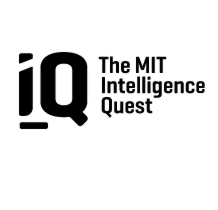MIT President Rafael Reif said more than 200 faculty working in fields including brain science, computer engineering, and robotics are planning to participate in the effort which is being pioneered by:
| MIT IQ Quest Launched |
| Written by Sue Gee | |||
| Thursday, 08 February 2018 | |||
|
How does human intelligence work, in engineering terms? How can we use that deep grasp of human intelligence to build wiser and more useful machines, to the benefit of society? These are the questions that the newly launched MIT Intelligence Quest sets out to tackle. Launched on February 1st, 2018 MIT Intelligence Quest is a multimillion-dollar plan to coordinate the individual efforts of MIT’s many experts from all corners of the campus with the aim of teaching computers to think more like the way people do
President Reif also sketched in the background to the initiative: Sixty years ago, at MIT and elsewhere, big minds lit the fuse on a big question: What is intelligence, and how does it work? The result was an explosion of new fields — artificial intelligence, cognitive science, neuroscience, linguistics, and more. They all took off at MIT and have produced remarkable offshoots, from computational neuroscience, to neural nets, to empathetic robots. And today, by tapping the united strength of these and other interlocking fields and capitalizing on what they can teach each other, we seek to answer the deepest questions about intelligence — and to deliver transformative new gifts for humankind. MIT IQ will feature two linked efforts. The first unit, dubbed The Core, will look to develop machine-learning algorithms. The Core will advance science and engineering of both human and machine intelligence with a heavy dose of computer science. According to Anantha Chandrakasan: “The Core is basically reverse-engineering human intelligence which will give us new insights into developing tools and algorithms, which we can apply to different disciplines. And at the same time, these new computer science techniques can help us with the understanding of the human brain. It’s very tightly linked between cognitive science, near science and computer science.” A second unit, called the Bridge, will be dedicated to applying MIT discoveries in natural and artificial intelligence across multiple disciplines and is designed to provide access to AI and ML tools across its various disciplines.The Bridge will be the part of MIT IQ that provides technologies, platforms, infrastructure, education and data sets. Along with developing and advancing the technologies of intelligence, MIT IQ researchers will also investigate the societal and ethical implications of advanced analytical and predictive tools. There are already active projects and groups at the Institute investigating autonomous systems, media and information quality, labor markets and the work of the future, innovation and the digital economy, and the role of AI in the legal system. Funding for the initiative will be provided by a combination of philanthropic donations and partnerships with corporations. But while the school has had blanket partnerships in the past, including, notably, the MIT-IBM Watson AI Lab, the goal here is not to become beholden to any single company. Ideally the school will be able to work alongside a broad range of companies to achieve its large-scale goals. These goals are are certainly ambitious. According to Chandrakasan: “MIT is placing a bet on the central importance of intelligence research to meeting the needs of humanity.” Josh Tenenbaum, professor of Cognitive Science and Computation says: “Imagine if we can build machine intelligence that grows the way a human does, that starts like a baby and learns like a child. That’s the oldest idea in AI and it’s probably the best idea… But this is a thing we can only take on seriously now and only by combining the science and engineering of intelligence.” James DiCarlo, head of the Department of Brain and Cognitive Sciences explains: “Many of the products are moonshoots. They involve teams of scientists and engineers working together. It’s essentially a new model and we need folks and resources behind that.” With the IQ Quest, MIT can be considered the latest big player to enter the AI arena - except that in the context of the MIT-IBM Watson Lab it has already made an entrance. Late last year Google announced an AI Center in China in addition to its AI research groups in New York, Toronto, London and Zurich. Also in 2017 Facebook opened its fourth AI research lab, in Montreal, to complement others in Menlo Park, New York and Paris, while in 2016 Microsoft formed its new Microsoft Research AI and Research Group under the leadership of Harry Shum to combined the efforts of more than 5,000 computer scientists and engineers and encompass a broad area of AI research. Also in 2016 Microsoft has partnered with Elon Musk's Open AI and the Partnership on AI was formed to bring together Amazon, DeepMind/Google, Facebook, IBM, and Microsoft in a non-profit organization to advance public understanding of artificial intelligence technologies and formulate best practices on the challenges and opportunities AI presents. According to Reif MIT IQ is intended to take advantage of — and strengthen — this culture of collaboration and will connect and amplify existing excellence across labs and centers already engaged in intelligence research.
More InformationInstitute launches the MIT Intelligence Quest
Related ArticlesHow Will AI Transform Life By 2030? Initial Report AI Goes Open Source To The Tune Of $1 Billion Google Opening AI Center In China Google Expands AI Research In Montreal Facebook's New AI Lab In Montreal New Microsoft AI and Research Group Formation of Partnership On AI
To be informed about new articles on I Programmer, sign up for our weekly newsletter, subscribe to the RSS feed and follow us on Twitter, Facebook or Linkedin.
Comments
or email your comment to: comments@i-programmer.info |
|||
| Last Updated ( Thursday, 08 February 2018 ) |


